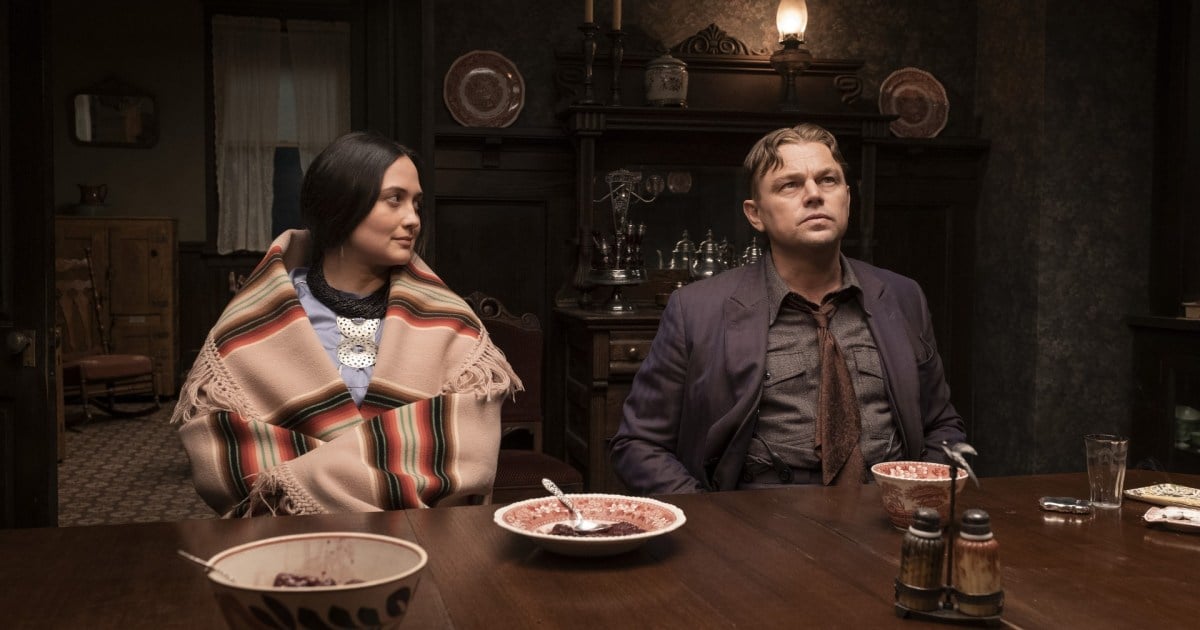The movie, which is based on a book of the same name, stars Lily Gladstone, Leonardo DiCaprio, and Robert De Niro (and, boy, do they shine) and tells the chilling true story of how white settlers carried out dozens of murders of members of the Osage Nation in the 1920s. It’s a dark—and essential—tale of American history that I, like KOTFM author David Grann himself, can’t recall learning about in school.
But in Oklahoma, where the murders took place, teachers say they aren’t sure they’re allowed to teach it in class. Under state measure HB 1775, schools are prohibited from teaching the idea that “an individual, by virtue of his or her race or sex, is inherently racist, sexist or oppressive, whether consciously or unconsciously” or that “any individual should feel discomfort, guilt, anguish or any other form of psychological distress on account of his or her race or sex.” (The law is similar to the policies in states like Florida and Texas, among a handful of others, that aim to block the discussion of themes like systemic racism, unconscious bias, and privilege.)
Of course, HB 1775 doesn’t specifically ban Killers of the Flower Moon. But the law is so vague that some educators reportedly say that they have avoided assigning the book and other texts out of fear of punishment.



You would think the law wouldn’t apply to this, as the story features virtuous white people too, but I think the issue is that getting sued is bad enough, and Oklahoma is conservative enough that a judge might go along with a prosecution despite what the first amendment says. The supreme Court might even let it stand, like they do with anti-BDS laws.
@jonne I don’t get how the law would apply to it even if all the white people in it were totally evil.
No history teacher is ever going to claim that the reason historical figures were racist was because it’s inherent in their biology.
But yeah I can see how it might have a chilling effect on ordinary people who don’t want to be sued. Is there any kind of organization over there that helps to test the meaning and limits of laws like these? Is it something the Civil Liberties Association would be interested in?
All it takes is for one parent to complain- even if the complaint isn’t justified- and the teacher’s job is on the line, if they aren’t in legal hot water.
@FlyingSquid that’s so terrible. It’s a wonder any science or history even gets taught.
The ACLU would definitely love to be involved to test a case like this, but if you’re a regular teacher, are you prepared to lose your job and then be involved in a years long court case?
@jonne good point, thanks for explaining. I always forget how easy it apparently is to fire people in some parts of the US.
In many parts of the US, lunch and breaks are not guaranteed. Companies can also fire someone for any or no reason as long as it’s not a very narrow and specific set of reasons without any legal repercussions. They can fire a person for those reasons as well and, if the person fired can’t find a lawyer or afford a lengthy case, get away with it.
The US is very much pro-employer.